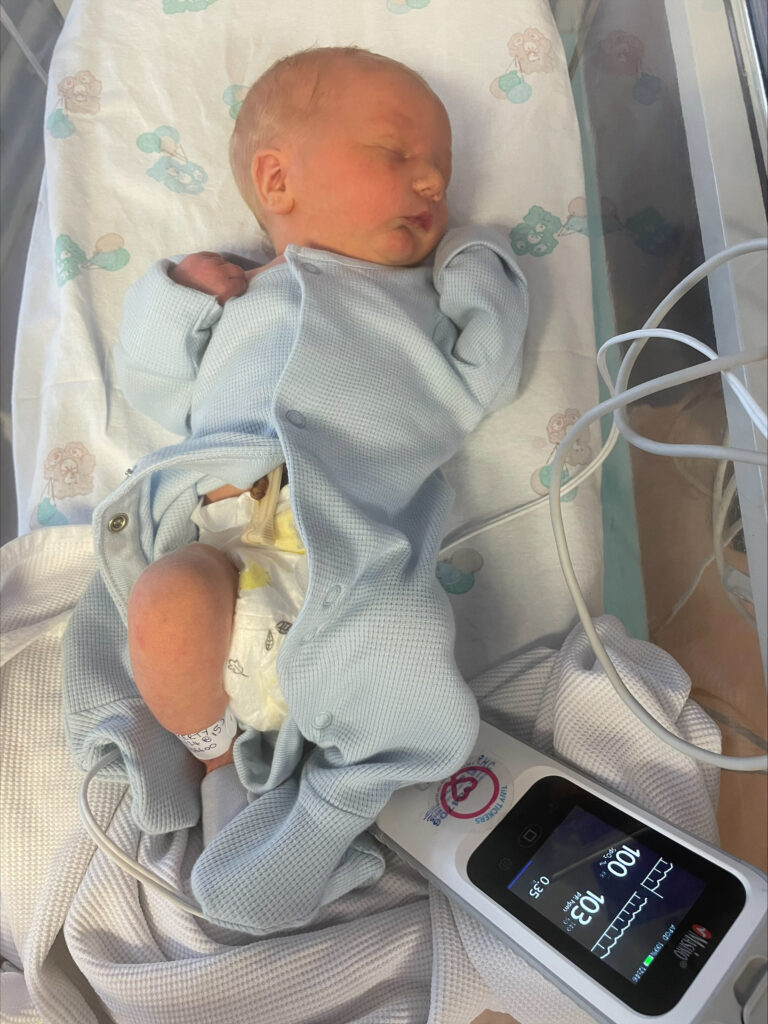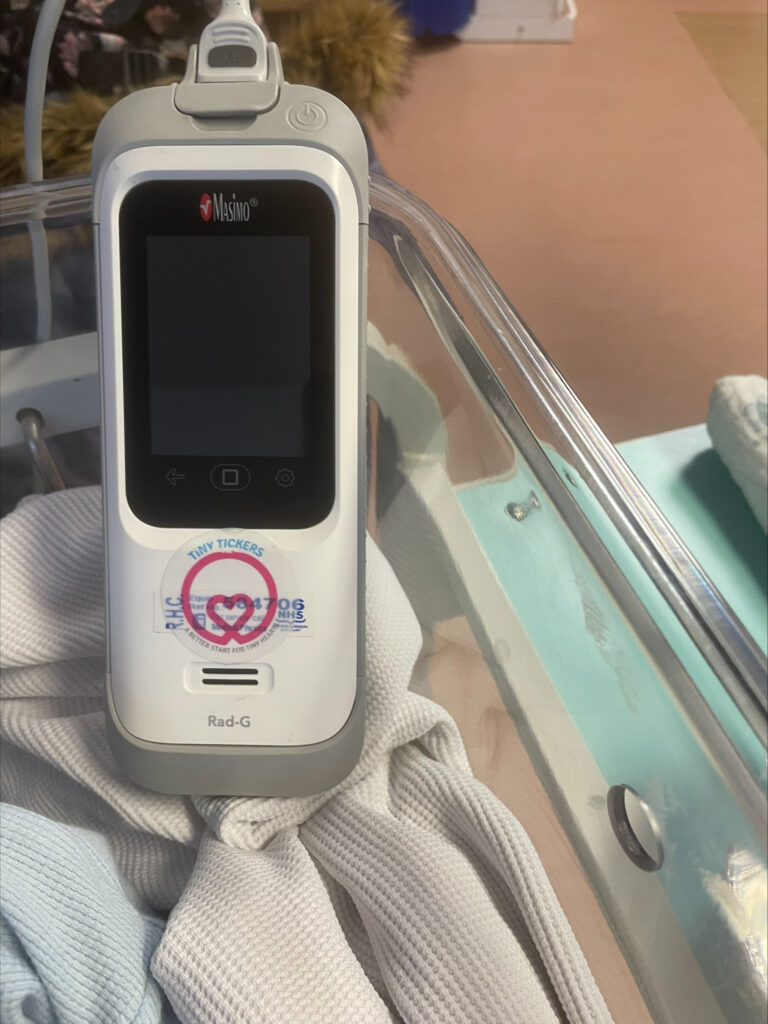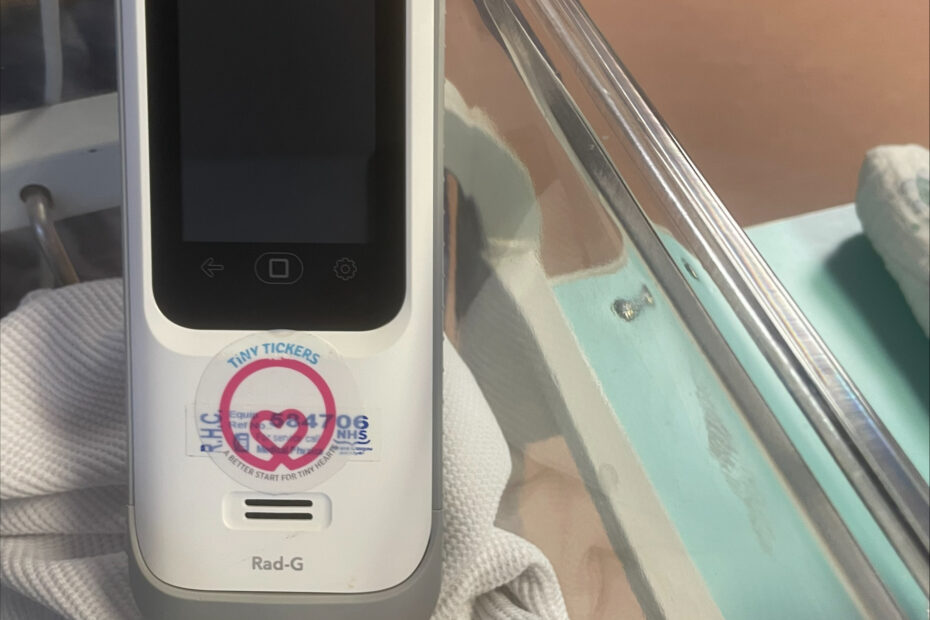
NHS Greater Glasgow and Clyde has introduced a test for every newborn baby that takes less than a minute but can detect a range of potentially serious conditions before the babies even become unwell.
The routine saturation testing, known as newborn pulse oximetry testing (POS), measures a baby’s blood oxygen levels to identify those who would benefit from clinical review before they become unwell. This is a small test but the early outcome that it provides can have a significant impact on a baby’s life.
POS – which will be given to every baby born at NHSGGC maternity units – can help detect babies with infection, breathing problems, and congenital heart disease defects (CHD) before they become unwell.
There are many different types and combinations of congenital heart defects. For many babies diagnosed with one, their condition is a minor problem which either doesn’t need any treatment or can be successfully corrected with surgery. Other conditions are more serious.
Newborn pulse oximetry testing is quick, non-invasive, and painless. It is performed around six to eight hours after a baby is born. The pulse oximetry monitor’s sensor is wrapped around a baby’s hand and foot for less than 60 seconds and measures levels of oxygenated haemoglobin which is displayed as a numerical number on the monitor.
This rollout of routine POS testing has been possible thanks to Tiny Tickers, a charity that improves the detection, care, and treatment of babies with serious heart conditions. Tiny Tickers provided NHS Greater Glasgow and Clyde Maternity Units with eighteen monitors free of charge.

Dr Lesley Jackson, Consultant in Neonatal Medicine at the Royal Hospital for Children, Glasgow, explained the impact this will have and how important the combined effort from across the units has been to the success of this rollout.
“We are continuously evolving our approach to maternal and newborn care and this rollout across NHS Greater Glasgow and Clyde has the potential to save lives by detecting breathing problems, infection and heart defects before babies become unwell.
“As you can imagine, rolling this out across every maternity unit in Greater Glasgow and Clyde, and our Community Midwifery Led units in rural areas has been quite an undertaking, made possible by an enormous team effort. It has been embedded and embraced by all our teams and we are grateful to them for the role that they’ve played in making this happen
“Most importantly, we’ve had the support of the charity, Tiny Tickers who have supplied monitors free of charge to all our units. A huge thank you to them for enabling us to get here,” she said.
Vicky Woodmansey, Head of Projects at Tiny Tickers, explained the important role that this testing will play in children’s lives.
“Our mission is to increase early detection rates of cardiac conditions because we know that spotting a defect early can improve a baby’s chances of survival and long-term quality of life. Supplying these monitors is a huge step towards this. We want to say a huge thank you to everyone involved at NHS Greater Glasgow and Clyde in helping to make this happen. We appreciate what an enormous team effort went into this from the maternity and neonatal teams, and are delighted to have helped,” she said.
